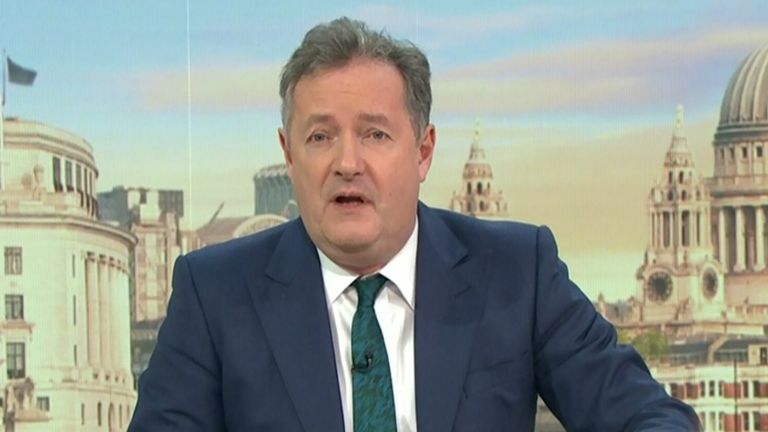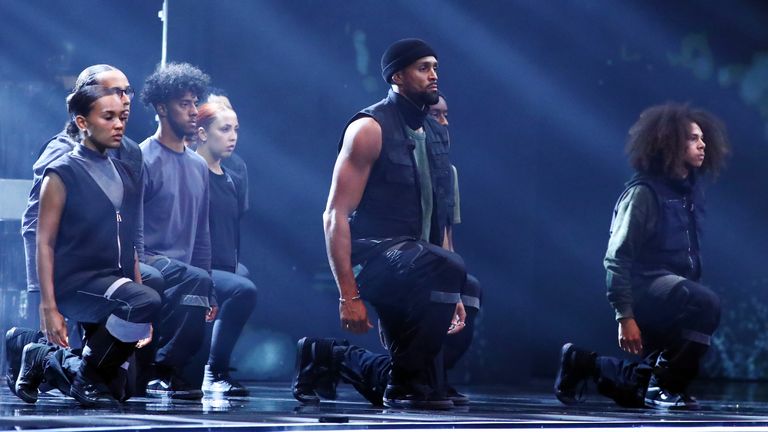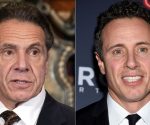Ofcom offensive language report: Audiences are more concerned about discrimination than swearing, new research finds | Ents & Arts News
[ad_1]
TV and radio audiences are becoming more relaxed about swearing but increasingly concerned about discriminatory language, particularly about race, Ofcom has found.
The broadcasting watchdog says it has conducted its “most thorough and detailed report on offensive language” ever to help regulators understand how tastes and tolerances evolve over time.
In 2020, just 1% of the complaints it received were about swearing, while 8% were about racial discrimination.
Some 600 people of all ages and backgrounds, living throughout the UK, took part in focus groups to give their views. Ofcom found that audiences had higher expectations about discriminatory language being avoided than swearing, including during live broadcasts.
When strong forms of discriminatory language do appear in programmes, people expect broadcasters to do as much as possible to put it into context, the watchdog said.
Looking at older programmes containing potentially problematic content and language, many participants said they did not want to see them disappear completely – arguing that history should not be censored – but others suggested outdated views on air could cause unnecessary offence and reinforce stereotypes.
Warnings about language and content that might cause offence are important so that viewers and listeners can make an informed choice, most people taking part agreed.
Adam Baxter, director of standards and audience protection at Ofcom, said that “views on offensive language can change significantly over time” so it is “essential we keep up to date”.
However, “broadcasters’ and audiences’ right to freedom of expression is important”, he added. “These findings will help us to strike the right balance between protecting audiences – and children in particular – from unjustified offence, while still allowing broadcasters the creative freedom to reflect real life in their programmes.”
The new research – its first into offensive language since 2016 – comes after Ofcom received a record 142,660 complaints in 2020-21 – more than four times the 34,545 received in 2019-20.
Speaking at a briefing about the offensive language report, Mr Baxter said the authority’s standards team had seen “no let-up” so far this year.
More than a third of the complaints made in 2020-21 were about Piers Morgan’s comments on Meghan Markle on Good Morning Britain in March. Ofcom received more than 50,000 reports, making it the regulator’s most complained about TV event ever; after assessing, it concluded ITV did not break broadcasting rules.
However, even without this “complaint event”, the watchdog’s standards team still had to consider a huge number of grievances, Mr Baxter said.
“There were some other examples of big complaint events throughout the year (2020-21),” he said. “But that having been said, that sheer large volume of complaints also shows there are just a huge number of cases that we’re now being required to consider in the standards team.
“Interestingly, in the current performance year, 2021-2022, we’re seeing no let-up in this trend for high numbers of complaints.”
Another big “complaint event” in 2020-21 was dance troupe Diversity’s routine on Britain’s Got Talent in September 2020, which featured a Black Lives Matter-inspired segment and attracted around 24,500 complaints.
Again, Ofcom concluded that the dance did not raise issues warranting investigation under its broadcasting rules.
The regulator faced another this year over an episode of Love Island, which led to almost 25,000 people getting in touch.
People watching more TV during lockdown periods could be one reason for rising complaints. But regulators are also increasingly dealing with report numbers snowballing after a show has broadcast, often due to moments going viral on social media, or following media reports on the initial complaints.
Sian Bundred, also from Ofcom’s standards team, said it is something they are looking into to try to understand better.
“I think we have seen an enormous jump over time,” she said. “The BBC as well has seen a big jump in complaints over this period of time. So we are working to understand that better.
“Ultimately, we will always assess the content, irrespective of whether we get the complaint as it’s broadcast or whether it’s a couple of days later
“Clearly over lockdown, people have watched more TV. A lot of the complaints that we get are about the large PSMs (public service media) who have large audiences and many of the shows that have large audiences as well. We know that often there are comments on social media, for example, about content that people have found to be problematic.
“We know that complaint numbers have gone up, both at Ofcom and other content regulators as well. And we are continuing to look through the data that we have over time… to understand exactly what it is that’s driving those complaints.”
[ad_2]
Source link













